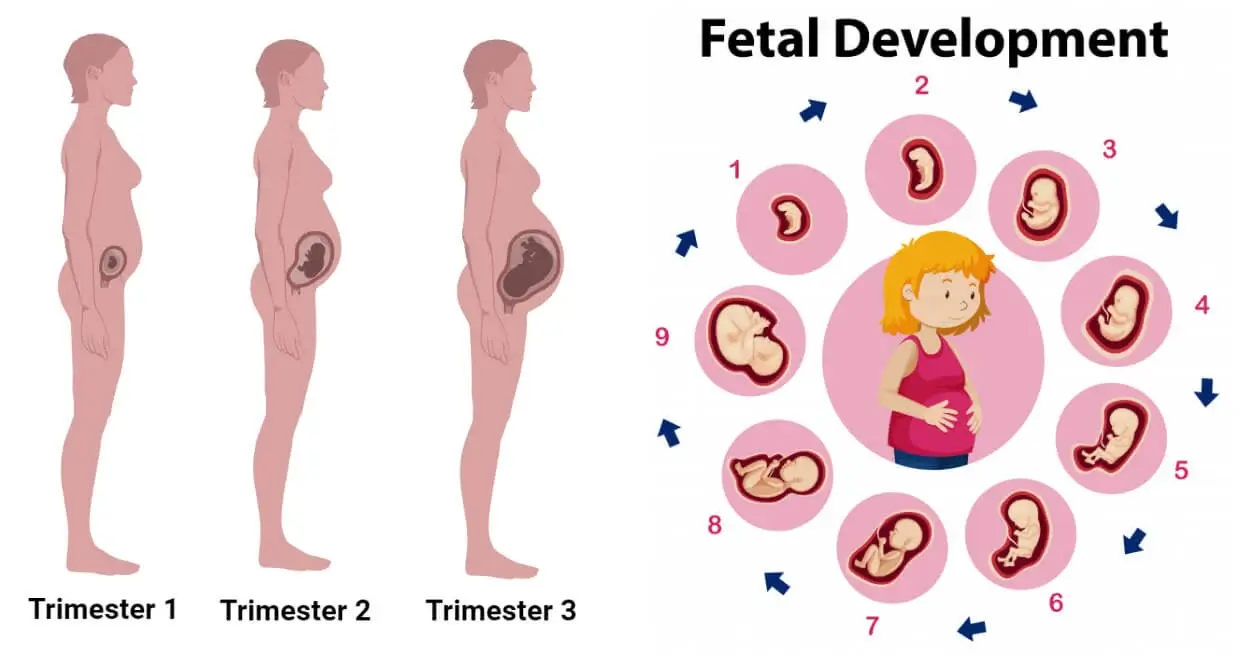
Pregnancy Week by Week: A Comprehensive Guide to Fetal Development
Pregnancy is a transformative journey marked by remarkable changes in both the mother’s body and the developing fetus. Each week brings new milestones and developments, shaping the growth and well-being of the future child. This comprehensive guide provides an in-depth look at fetal development week by week, offering a detailed account of the intricate processes that unfold within the womb.
Week 1-2: Conception and Implantation
Pregnancy begins with conception, the moment when a sperm fertilizes an egg. The fertilized egg, known as a zygote, undergoes rapid cell division as it travels down the fallopian tube towards the uterus. Around day 5-6, the zygote reaches the uterus and implants into the uterine lining, initiating the process of pregnancy.
Week 3-4: Embryonic Development
During these early weeks, the implanted zygote undergoes significant transformation, forming three distinct layers: the ectoderm, mesoderm, and endoderm. These layers give rise to all the organs and tissues of the developing embryo. The heart and brain begin to form, and the embryo is enclosed in a protective amniotic sac filled with fluid.
Week 5-8: Organogenesis
This period marks the rapid development of the embryo’s organs and systems. The brain, heart, lungs, liver, and other vital organs take shape. Limbs begin to bud, and facial features start to emerge. The embryo is now referred to as a fetus.
Week 9-12: Fetal Growth and Movement
The fetus continues to grow rapidly, reaching a length of about 3 inches by the end of week 12. External genitalia become visible, allowing for gender determination. The fetus begins to move and kick, although these movements may not be felt by the mother yet.
Week 13-16: Fetal Activity and Development
The fetus becomes more active, and its movements become more pronounced. The skeletal system continues to develop, and the fetus begins to produce urine. The eyelids open, and the fetus can respond to light and sound.
Week 17-20: Rapid Growth and Maturation
The fetus experiences a period of rapid growth, doubling in size. The skin thickens and becomes covered in a protective layer called vernix caseosa. The fetus begins to swallow amniotic fluid, which aids in the development of the digestive system.
Week 21-24: Sensory Development
The fetus’s senses continue to develop, and it can now hear sounds from the outside world. The fetus also begins to dream, as evidenced by rapid eye movements.
Week 25-28: Fetal Breathing and Lung Development
The fetus’s lungs begin to produce surfactant, a substance that helps prevent the alveoli from collapsing. The fetus practices breathing movements, preparing for life outside the womb.
Week 29-32: Weight Gain and Maturation
The fetus gains weight rapidly, and its body becomes more proportional. The brain undergoes significant development, and the fetus can now control its body temperature.
Week 33-36: Fetal Position and Preparation
The fetus typically turns head-down in preparation for birth. The lungs continue to mature, and the fetus begins to produce a waxy substance called meconium in its intestines.
Week 37-40: Final Preparations
The fetus reaches full term and is ready for birth. The lungs are fully developed, and the fetus has gained a significant amount of weight. The fetus may engage in the pelvis, descending into the birth canal.
Week 41+: Post-Term Pregnancy**
If the fetus has not been born by week 41, it is considered post-term. The placenta begins to age, and the fetus may experience decreased oxygen and nutrient supply.
Monitoring Fetal Development
Regular prenatal checkups are essential for monitoring fetal development and ensuring the well-being of both the mother and the baby. These checkups may include:
- Ultrasound scans to visualize the fetus and assess its growth and development
- Blood tests to check for genetic abnormalities and other health concerns
- Physical exams to monitor the mother’s health and progress
Factors Affecting Fetal Development
Various factors can influence fetal development, including:
- Maternal health and nutrition
- Genetic factors
- Environmental exposures
- Maternal age and lifestyle choices
Conclusion
Pregnancy is a complex and dynamic process characterized by remarkable fetal development. Each week brings new milestones and transformations, shaping the growth and well-being of the future child. By understanding the intricate processes involved in fetal development, expectant parents can gain a deeper appreciation for the miracle of life and the importance of prenatal care.